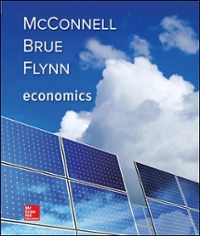Question
Political and Economic Reform in Myanmar For decades, the Southeast Asian nation of Myanmar (formerly known as Burma) was an international pariah. Ruled by a
Political and Economic Reform in Myanmar
For decades, the Southeast Asian nation of Myanmar (formerly known as Burma) was an international pariah. Ruled by a brutal military dictatorship since the 1960s, political dissent was not tolerated, the press was tightly controlled, and opposition parties were shut down. Much economic activity was placed in the hands of the statewhich effectively meant the hands of the military elite, who siphoned off economic profits for their own benefit. Corruption was rampant. In the 1990s, America and the European Union imposed sweeping economic sanctions on the country to punish the military junta for stealing elections and jailing opponents. The de facto leader of the country's democratic opposition movement, Nobel Peace Prize-winner Aung San Suu Kyi, was repeatedly placed under house arrest from 1989 through 2010.
None of this was good for the country's economy. Despite having a wealth of natural resources, including timber, minerals, oil, and gas, the economy stagnated while its Southeast Asian neighbors flourished. By 2012, Myanmar's GDP per capita was $1,400. In neighboring Thailand, it was $10,000 per capita. The economy was still largely rural, with 70 percent of the country's nearly 60 million people involved in agriculture. This compares with 8.6 percent in Thailand. Few people own cars or cell phones, and there are no major road or rail links between Myanmar and its neighborsChina, India, and Thailand.
In 2010, the military again won elections that were clearly rigged. Almost no one expected any changes, but the new president, Thein Sein, was to defy expectations. The government released hundreds of political prisoners, removed restrictions on the press, freed Aung San Suu Kyi, and allowed opposition parties to contest seats in a series of by-elections. When Aung San Suu Kyi won a by-election, thrashing her military-backed opponent, they let her take the seat, raising hopes that Myanmar was at last joining the modern world. In response, both America and the European Union began to lift their sanctions.
Thein Sein also started to initiate much-needed economic reforms. Even before the 2010 elections, the military had begun to quietly privatize state-owned enterprises, although many were placed in the hands of cronies of the regime. In 2012, Thein Sein stated that the government would continue to reduce its role in a wide range of sectors, including energy, forestry, health care, finance, and telecommunications. Land reforms are also under way. The government also abandoned the official fixed exchange rate for the Myanmar currency, the kyat,replacing it with a managed float. From 2001 to 2012, the official exchange rate for the kyatvaried between 5.75 and 6.70 per U.S. dollar, while the black-market rate was between 750 and 1,335 per U.S. dollar. The official fixed exchange rate had effectively priced Myanmar's exports out of the world market, although it did benefit the military elite who were able to exchange their worthless kyat for valuable U.S. dollars on very favorable terms. Implemented in April 2012, the managed float valued the kyat at 818 per U.S. dollar. The dramatic fall in the value of the kyat is expected to stimulate demand for exports from Myanmar and help the economy grow.
To further encourage economic growth, the government signaled that it would welcome foreign direct investment and encouraged foreign enterprises to enter into partnerships with domestic enterprises in its underdeveloped telecommunications sector. General Electric and IBM are among the companies stating that they may invest in the country. Between 2010 and 2014, Myanmar recorded the largest increase in inward FDI of any country in Southeast Asia apart from the Philippines, although admittedly from a low base.
In November 2015, general elections were held in Myanmar. These were the first free and fair elections in 25 years. The results were stunning. The opposition party, the National League for Democracy, led by Anug San Suu Kyi, won 81 percent of the seats in parliament, sweeping the military-backed government out of office. It now seems likely that Myanmar will finally emerge from its isolation.
QUESTION 1: Reflect on how military dictatorships like the one in Myanmar hamper economic development. Discuss the consequences of this type of political system.
QUESTION 2: Since 2010, Myanmar's new president has implemented a series of political and economic reforms. How will these reforms change the nation? What do they mean for the country's citizens?
Step by Step Solution
There are 3 Steps involved in it
Step: 1

Get Instant Access to Expert-Tailored Solutions
See step-by-step solutions with expert insights and AI powered tools for academic success
Step: 2

Step: 3

Ace Your Homework with AI
Get the answers you need in no time with our AI-driven, step-by-step assistance
Get Started


